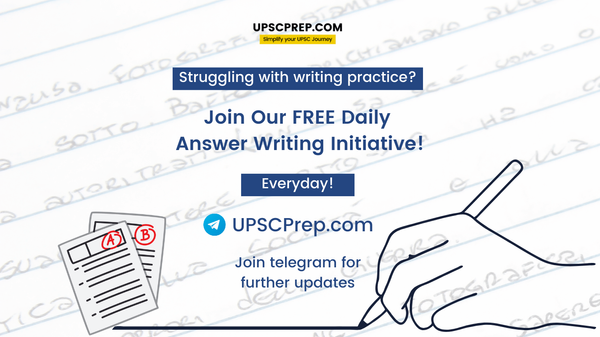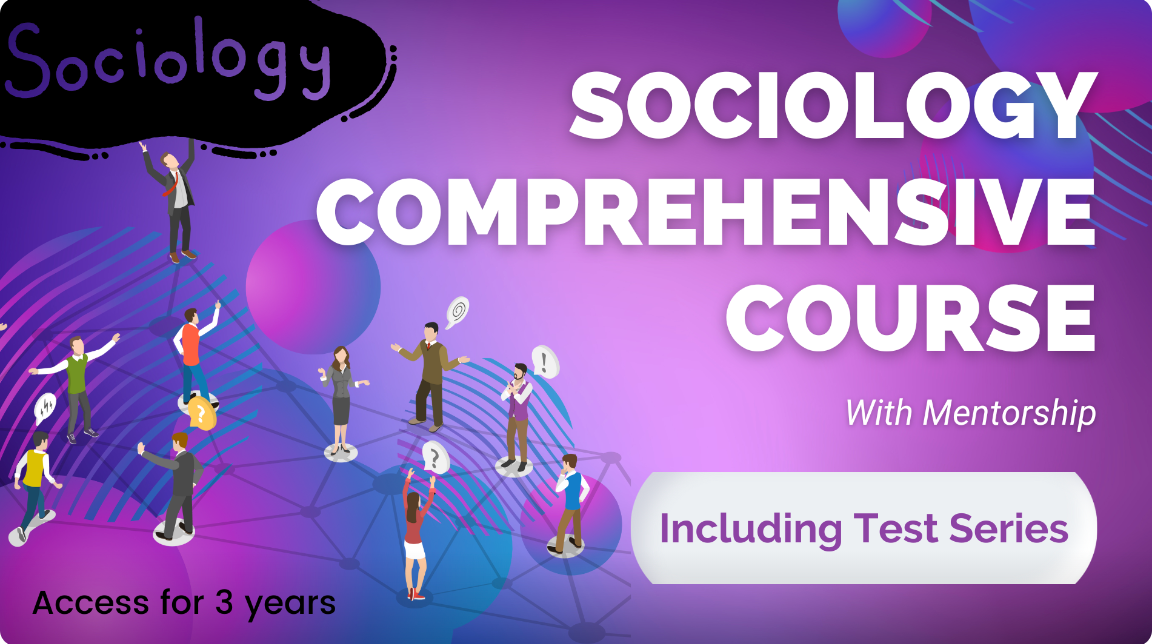Questions
- Examine the roles of Artificial Intelligence technology through the lens of the Mertonian perspective. (10 Marks)
- Merton's concept of relative deprivation is closely connected to his study of reference group behaviour. Explain how these concepts are interlinked. (10 Marks)
Download Model Structures PDF
Model Structures
Q1. Examine the roles of Artificial Intelligence technology through the lens of Mertonian perspective. (10 Marks)
Introduction
- Merton's functionalism emphasises the positive functions that social institutions and phenomena serve in maintaining social stability and cohesion.
Main Body
Applying this perspective to AI technology, we can identify various functions it serves in contemporary society:
- Problem-Solving and Efficiency: AI technology has the capacity to process vast amounts of data quickly and accurately. It excels in problem-solving tasks, such as data analysis, pattern recognition, and optimization. This efficiency enhances productivity and streamlines processes across various sectors, leading to increased economic output and improved quality of products and services.
- Advancements in Science and Knowledge: AI contributes to scientific research by aiding in data analysis, simulations, and modeling complex phenomena. It accelerates the pace of discovery and facilitates the advancement of knowledge in fields like medicine, astronomy, climate science, and more.
- Automation and Labor Market: AI-driven automation can replace repetitive and mundane tasks, freeing up human labor for more creative and higher-value activities. However, this aspect of AI also brings concerns about job displacement and the need for retraining and reskilling the workforce.
- Personalization and User Experience: AI-powered algorithms enable personalized recommendations in various domains, such as e-commerce, entertainment, and social media. This enhances the user experience and encourages engagement with digital platforms.
- Healthcare and Medicine: AI technologies have the potential to revolutionize healthcare through diagnosis, treatment planning, drug discovery, and patient care. It can improve medical accuracy, accessibility, and efficiency.
- Security and Defense: AI is increasingly utilized in security and defense applications, including surveillance, threat detection, and cyber defense. It enhances national security and public safety measures.
- Social Interaction and Communication: AI-enabled chatbots and virtual assistants facilitate human-computer interaction and communication. They offer support and information, making digital interfaces more user-friendly.
- Accessibility and Inclusivity: AI technology can assist individuals with disabilities by providing solutions for accessibility and inclusivity in various domains, such as education, employment, and daily living.
AI technology also presents some potential dysfunctions and challenges:
- Ethical Concerns: AI raises ethical dilemmas related to privacy, data protection, bias in algorithms, and the impact on human decision-making processes.
- Inequality and Digital Divide: The unequal distribution of AI technology and access to its benefits can exacerbate existing social and economic disparities, creating a digital divide.
- Unemployment and Job Displacement: The automation potential of AI may lead to job displacement in certain sectors, affecting employment opportunities for specific groups of workers.
- Loss of Human Control: The increasing reliance on AI raises concerns about the loss of human autonomy and decision-making power, particularly in critical domains like autonomous vehicles and military applications.
Conclusion
- Artificial Intelligence technology serves numerous positive functions that contribute to societal advancement and progress. However, it also poses challenges and potential dysfunctions that need to be addressed through thoughtful regulation, ethical considerations, and social policy to ensure its responsible and beneficial integration into society.
Q2. Merton's concept of relative deprivation is closely connected to his study of reference group behavior. Explain how these concepts are interlinked. (10 Marks)
Introduction
- Merton inspired from Samuel Stouffer’s “The American Soldier” which highlights the feeling of relative deprivation of a soldier despite no deprivation in terms of actual hardship.
- Reference Group is defined as a group, with which one always makes a comparison, in order to evaluate one's achievement, aspirations, role performance and ambition. They act as normative standards for the individual.
Main Body
- Reference groups are used in order to evaluate and determine the nature of a given individual or other group’s characteristics and sociological attributes.
- Happiness or deprivation are not absolutes, they depend on the scale of measure as well as on the frame of reference.
- Merton: Social Theory and Social Structure (1949)
- Explained concept of relative deprivation; CLOSELY linked with Ref Group
- Examined the findings of the Samuel Stouffer - American Soldier - a work published in 1949
- Married soldiers when considering unmarried soldiers as a reference group feel they are deprived of the kind of freedom that their unmarried associates are enjoying.
- The overseas soldier, relative to soldiers still at home, suffered a greater break with home ties and with many of the amenities of life in the United States to which he was accustomed
- By choosing the Ref Group - relative deprivation of an individual differs.
- An Indian student in a prestigious university in the United States may have sufficient reasons to feel happy. He has access to a better academic atmosphere - more books, more research materials, more seminars, and so on.
- But if he refuses to remain contented with this academic world and thinks of an alternative scale of evaluation which values above all else a home life with his parents, brothers and sisters then his ‘happiness’ would begin to disappear.
- Frequency of interaction with one’s reference group, proximity, degree of openness or closeness of the system and rewards determine the way in which one deals with relative deprivation.
Conclusion
- Sociologists now argue that relative differences in economic wealth are more important than absolute deprivation, and that it is more significant in determining human quality of life.

